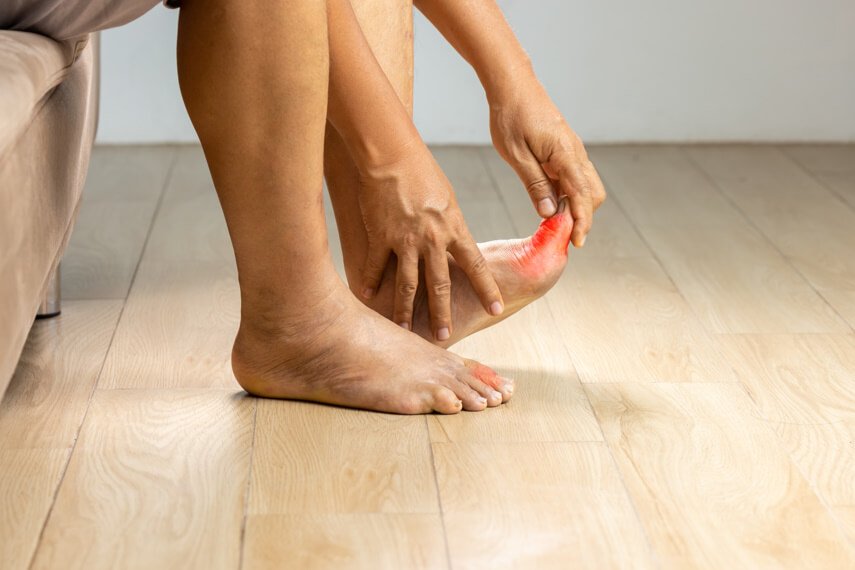Surgical Nerve Repair for Diabetic Foot Patients
Living with diabetes presents various challenges, one of which is the risk of nerve damage, especially in the feet. This condition, known as diabetic neuropathy, can lead to loss of sensation, making individuals susceptible to injuries and ulcers. While managing blood sugar levels is crucial, some patients may require surgical interventions to restore nerve function and prevent further complications. Surgical nerve repair offers hope by addressing damaged nerves, aiming to improve quality of life for diabetic foot patients.
Understanding Nerve Damage in Diabetic Patients
Diabetic neuropathy arises from prolonged high blood sugar levels, which can injure nerves throughout the body. The feet are particularly vulnerable due to their distance from the heart and the stress they endure daily. Common nerve damage symptoms include tingling, burning sensations, numbness, and pain. Over time, these symptoms can progress, leading to muscle weakness and foot deformities. Recognising these nerve injury symptoms early is vital to prevent severe complications like ulcers or even amputations.
Diagnosis and Assessment Before Surgery
Before considering surgery, a thorough evaluation is essential. Healthcare professionals will assess the extent of nerve damage through clinical examinations and diagnostic tests. This process may involve nerve conduction studies, electromyography, and imaging tests to pinpoint affected areas. Understanding the severity and location of nerve damage helps in planning the appropriate surgical approach. At Surat Diabetic Foot and Ulcer Clinic, comprehensive assessments ensure personalised treatment plans for each patient.
Surgical Nerve Repair Techniques
Several surgical techniques are employed to address nerve damage in diabetic patients:
- Nerve Decompression: This procedure involves relieving pressure from compressed nerves, often caused by swollen tissues or anatomical structures. By freeing the nerve, blood flow improves, facilitating healing.
- Neurolysis: This technique entails removing scar tissue surrounding a nerve, restoring its function. It's particularly beneficial when nerve entrapment leads to pain or loss of function.
- Nerve Grafting: In cases where nerve damage is extensive, surgeons may transplant a healthy nerve segment from another body part to replace or bypass the damaged section.
The choice of technique depends on the individual's condition and the surgeon's expertise.
Recovery and Post-Surgical Care
Post-surgery, patients play a crucial role in their recovery. Adhering to post-surgical care guidelines ensures optimal healing and prevents complications:
- Wound Care: Keeping the surgical site clean and dry is essential to prevent infections.
- Physical Therapy: Engaging in prescribed exercises helps restore strength and flexibility.
- Blood Sugar Management: Maintaining stable blood glucose levels supports nerve healing and overall health.
Regular follow-ups with healthcare providers ensure that recovery is on track and any issues are promptly addressed.
Benefits of Surgical Nerve Repair for Diabetic Patients
Undergoing nerve repair surgery offers several advantages:
- Pain Relief: Many patients experience a significant reduction in pain post-surgery.
- Improved Sensation: Restoring nerve function can lead to better sensation in the feet, reducing the risk of unnoticed injuries.
- Enhanced Mobility: With reduced pain and improved function, patients often regain mobility, leading to a better quality of life.
These benefits highlight the importance of considering surgical options for eligible patients.
Preventing Further Nerve Damage
Prevention remains a cornerstone in managing diabetic neuropathy:
- Blood Sugar Control: Consistently monitoring and managing blood glucose levels is paramount.
- Regular Foot Examinations: Routine checks help in the early detection of issues, allowing for timely interventions.
- Proper Footwear: Wearing shoes that provide adequate support and protection minimises injury risks.
At Surat Diabetic Foot and Ulcer Clinic, patient education emphasises these preventive measures, empowering individuals to take charge of their health.
Why Choose Surat Diabetic Foot Clinic for Surgical Nerve Repair?
Surat Diabetic Foot and Ulcer Clinic stands out for its dedicated approach to diabetic foot care:
- Expertise: Led by experienced surgical nerve repair specialists, the clinic offers advanced surgical interventions tailored to individual needs.
- Comprehensive Care: From diagnosis to post-surgical rehabilitation, patients receive holistic care under one roof.
- Patient-Centric Approach: Emphasising personalised treatment plans, the clinic ensures that each patient's unique concerns are addressed.
Choosing the right clinic is pivotal for successful outcomes, and Surat Diabetic Foot and Ulcer Clinic exemplifies excellence in this field.
Conclusion
Diabetic neuropathy poses significant challenges, but with advancements in surgical interventions, there's hope for improved nerve function and quality of life. Understanding the options available and partnering with specialised clinics like Surat Diabetic Foot and Ulcer Clinic can make a profound difference in patient outcomes. Prioritising nerve health through preventive measures and timely interventions is essential for those living with diabetes.
If you or a loved one is experiencing nerve damage symptoms related to diabetes, don't wait. Contact Surat Diabetic Foot and Ulcer Clinic today to schedule a comprehensive evaluation. Our team of experts is committed to providing the highest quality care, ensuring you take confident steps towards better foot health.
FAQs
Can you fix nerve damage in the foot from diabetes?
While nerve damage caused by diabetes (diabetic neuropathy) cannot always be completely reversed, treatments like surgical nerve repair, nerve decompression, and lifestyle modifications can help restore some nerve function and alleviate symptoms. Early intervention improves outcomes significantly.
What is the surgery for diabetic foot ulcers?
Surgical treatments for diabetic foot ulcers include debridement (removal of dead tissue), skin grafting, and in severe cases, limb salvage surgery to prevent amputation. Nerve repair surgery may also be performed if nerve damage is contributing to the ulcer.
What is the best treatment for diabetic nerve damage?
The best treatment depends on the severity of nerve damage. It includes blood sugar control, medications (like nerve pain relievers), physical therapy, and, in some cases, surgical nerve repair to restore function.
Is there a surgery for foot neuropathy?
Yes, surgical options for foot neuropathy include nerve decompression surgery, which relieves pressure on damaged nerves, and nerve grafting, which helps restore nerve function in severely affected cases.
What is the new treatment for diabetic foot ulcers?
Recent advancements include growth factor therapy, stem cell treatment, and skin substitutes to promote healing. Advanced wound dressings and negative pressure wound therapy (NPWT) are also improving recovery rates.
Can diabetics have foot surgery?
Yes, diabetics can undergo foot surgery, including nerve repair surgery, ulcer treatment, and corrective procedures. However, strict blood sugar control and proper post-surgical care are crucial to ensure successful healing.
Can foot nerve damage be repaired?
Yes, surgical nerve repair techniques such as nerve decompression, neurolysis, and nerve grafting can help restore function and relieve pain caused by diabetic nerve damage.
What are the 7 vitamins that repair nerve damage?
The essential vitamins for nerve health include:
- Vitamin B1 (Thiamine) - Supports nerve function
- Vitamin B6 - Aids in nerve signal transmission
- Vitamin B12 - Crucial for nerve regeneration
- Vitamin D - Reduces nerve pain
- Alpha-lipoic acid - An antioxidant that protects nerves
- Magnesium - Supports nerve repair
- Vitamin E - Helps prevent nerve damage
What is the latest treatment for neuropathy in the feet?
New treatments include stem cell therapy, plasma-rich injections, and neuromodulation therapy, which uses electrical stimulation to improve nerve function. Advanced pain management techniques are also emerging for better symptom control.
How Can Diabetes Affect My Nail Health?
Diabetes can cause poor circulation and nerve damage, leading to brittle, thickened, or discoloured nails. High blood sugar levels also make diabetics more prone to fungal infections.
What Are the Most Common Signs of Nail Infections in Diabetic Patients?
Common signs include nail discolouration, thickening, brittleness, pain, swelling, and foul odour. Left untreated, infections can spread and lead to severe complications.
Can Brittle Nails Be a Sign of Diabetes Complications?
Yes, brittle nails can result from poor blood circulation and high glucose levels, which affect nail growth and strength.
What Should I Do If My Toenail Becomes Ingrown?
Soak your foot in warm water, trim the nail straight across, and avoid tight shoes. If the pain persists, consult a doctor to prevent infection.
How Can I Prevent Nail Separation Due to Fungal Infections?
Keep nails dry, avoid walking barefoot in public areas, trim nails properly, and seek treatment at the first sign of infection.






.jpg)

